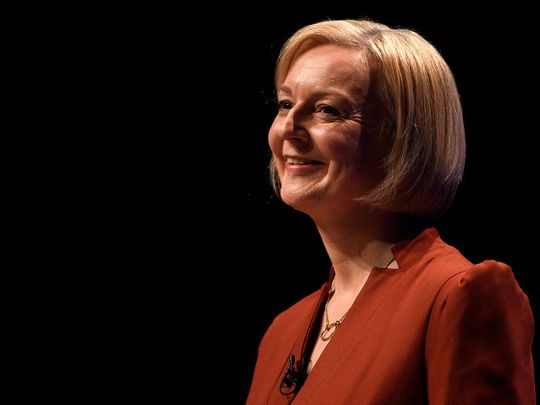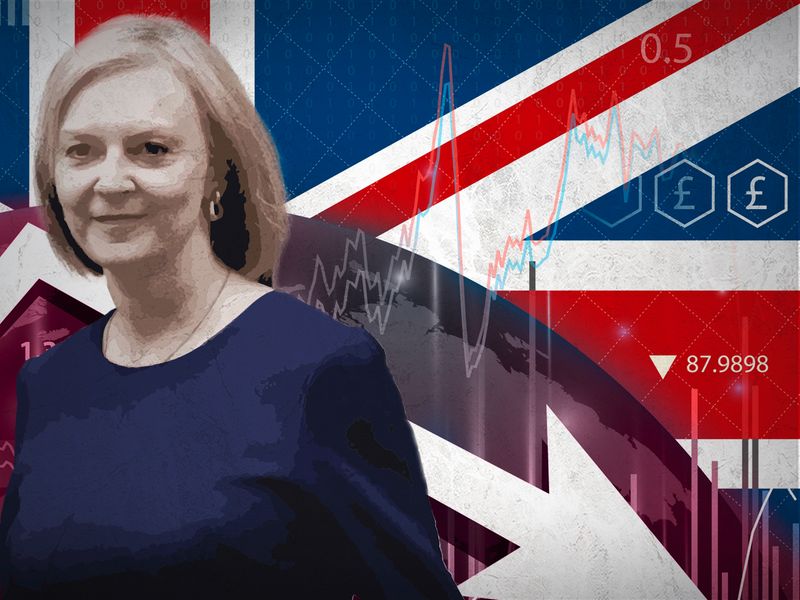
There’s a story told about Margaret Thatcher, the former British prime minister, who supposedly took her closest cabinet colleagues out to dinner. As they examined the menus, the waiter went to the PM and asked what she wanted to eat.
“I’ll have the steak” she said.
“And the vegetables?” the waiter inquired.
“They’ll have the same.”
Whether the tale is true or not, it does point to an important principle in UK politics — that of collective responsibility in Cabinet — whereby all stand together as a single cohesive unit, and nothing is leaked. They are all equally responsible for the general direction of government and also responsible for their respective departments.
But Thatcher is long gone. And so, it seems too as if the very notion of responsibility — never mind collective responsibility — is also long gone in the month-old government of Liz Truss.
Whereas Cabinets once upon a time in Britain were brought together from the best and the brightest of party Members of Parliament, the cabinet now is but the closest supporters and backers of Truss. And closest doesn’t not necessarily equate to best nor brightest.
Kwasi Kwarteng, the Chancellor of the Exchequer — most refer to him now as the Chancer at the Exchequer — has long been an ideological partner to Truss, and the pair co-wrote an economic textbook Britannia Unchained together, laying out the trickle-down fiscal policies that were supposed to create unprecedented growth.
You would imagine, then, that not only would the pair be loyal to one another, they would also be resolute in driving their plan forward — collective responsibility notwithstanding.
Well, that lasted all of a week.
A complete U-turn
As Conservative members gathered in Birmingham earlier this week, Truss and Kwarteng announced a complete U-turn on abolishing the highest rate of income tax — 45 pence on the pound for those earning in excess of £150,000. They did so because they faced a revolt from party members that would mean certain defeat in the House of Commons. Defeat on a finance measure is generally taken as a confidence vote, meaning a general election would follow.
And right now, the last thing this government needs is a general election.
Regular readers of this column will remember that last week I opined that the Truss government would see its popular support fall to 25 per cent behind Labour. Readers, I apologise. According to opinion polls, the Truss government sits a full 34 per cent behind. Now even a cynic such as I could have predicted such a calamitous drop in support.
That’s why the Conservative party conference has all of the feeling of a wake. At least at a wake, you’re able to tell some decent story of the deceased.
As the delegates were gathering on Saturday, one party member tweeted that the city was a “dump” — which went down as well as a fly in a punch bowl.
When senior party members — Rishi Sunak and Boris Johnson didn’t attend — use fringe events to undermine Truss and her colleagues, there’s every sign that this is a party in a death spiral. The Earth is fast approaching and there appears to be no way from Truss to pull out of the inevitable.

Normally new party leaders enjoy a honeymoon period. Truss? No such thing. No bump in the polls. Nothing. In fact, Truss and her party is at 21 per cent, with Labour topping 54 per cent.
It’s important to remember here that Johnson led his party to an 80-seat majority.
If a general election were held right now, the Conservatives would be lucky to win 60 seats. Yep, 60. And they have 360 seats now.
The results would likely mean that if would be two more elections — say be 2030 — before the party might be competitive again in forming a government.
Kwarteng’s speech to the conference on Monday was lacklustre and unimaginative, doing little to restore confidence in the government’s fiscal policy.
Truss? Hers was equally lacklustre, equally unimaginative, and certainly uninspiring. For the delegates who did stick around, there was nothing to alleviate the sense of doom and gloom that has enveloped this party. It is tired. And jaded. And so are voted. Tired and jaded by a party that for the past five years has been consumed by Brexit.
Low-wage economy
The reality now is that with Truss and Kwarteng at the helm, Brexit means removing environmental, planning and regulatory controls, turning Britain into a low-wage economy where the richest benefit from government largesse.
Truss has hinted that policies she wants to put in place are aimed to coincide with a general election in May, 2024. Fat chance.
Conservative MPs are already organising letters of no confidence in Truss, seeking to chance party rules to allow for her removal. A “bring back Boris” campaign is already being mooted. Some would even welcome the return of Theresa May. And most would welcome the end of Truss.
With its support soaring, Labour can almost taste power.
Perhaps the greatest impediment to Labour has been Britain’s first-past-the-post electoral system.
At its party conference, Labour adopted proportional representation as a policy. Sir Keir Starmer, the party leader, has been silent on the subject. Perhaps he feels that a majority of Brits would now support such a radical change. Maybe he’s right.
With the Conservatives imploding, the current first-past-the-post system will likely suit Labour very well. And with the prospect of 60 seats for the Tories, maybe they’ll come up with something, quick, that might give them even the slimmest of chances of retaining power. Yeah, right.









